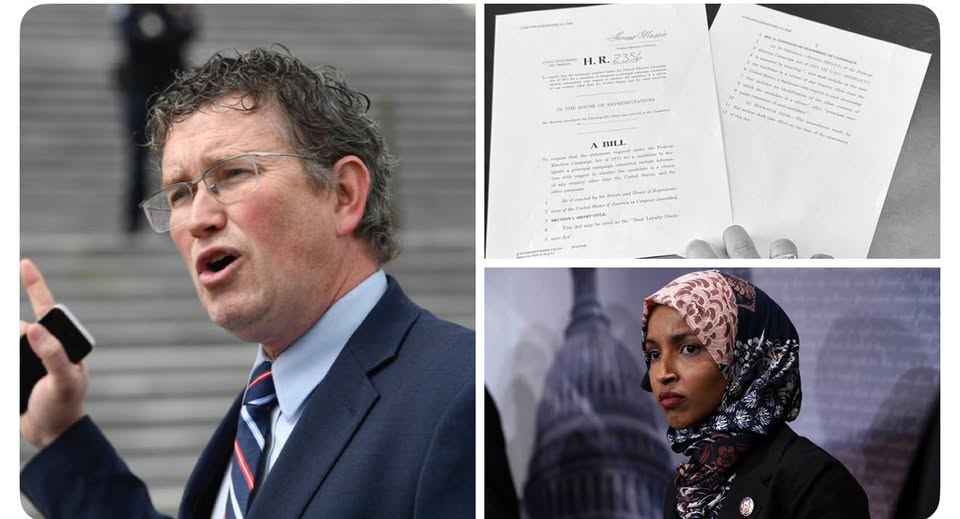In a bold move to ensure transparency and accountability in U.S. politics, Rep. Thomas Massie has introduced a bill that would require all individuals running for federal office to disclose every country where they hold citizenship. The proposal aims to bring greater clarity to voters about potential foreign allegiances among candidates seeking public office.
The bill has already sparked heated debate, with many conservatives arguing that it does not go far enough. Some believe the U.S. should take even stronger measures by outright banning dual citizens from holding office. The concern stems from fears that individuals with dual allegiances may prioritize foreign interests over those of the American people.
Critics of dual citizenship in government often point to figures like Rep. Ilhan Omar, who immigrated from Somalia and later became a U.S. citizen. Many argue that individuals with strong ties to foreign nations should not have a role in shaping America’s policies, especially when national security and foreign relations are at stake.
Political commentator Nick Sortor echoed these concerns, sharing on X that figures like Omar, who he claims remain loyal to their country of origin, should have “ZERO say in our government.” His remarks reflect a growing sentiment among conservatives who believe federal lawmakers should be exclusively committed to the United States.
Massie’s bill comes amid a broader conversation about national loyalty and influence in government. While dual citizens are allowed to serve in Congress, some argue that the increasing complexity of global politics makes it essential to ensure lawmakers have undivided allegiance to the U.S. The proposed legislation could set a new standard for transparency, forcing candidates to disclose any foreign citizenships they hold before appearing on the ballot.
Supporters of the bill argue that voters deserve full knowledge of a candidate’s background, including any potential foreign ties. They believe that knowing whether a lawmaker has citizenship in another country is crucial when it comes to decision-making on critical issues such as military aid, international trade, and immigration policies.
As the debate unfolds, Massie’s bill will likely face significant opposition from left-leaning lawmakers and activist groups who argue that banning dual citizens from office would be discriminatory. However, for many Americans, the issue boils down to one fundamental question: Should those who help shape U.S. laws and policies have sole allegiance to America?
With political tensions at an all-time high, this legislation could set the stage for a major battle over national identity, security, and the future of American leadership.
